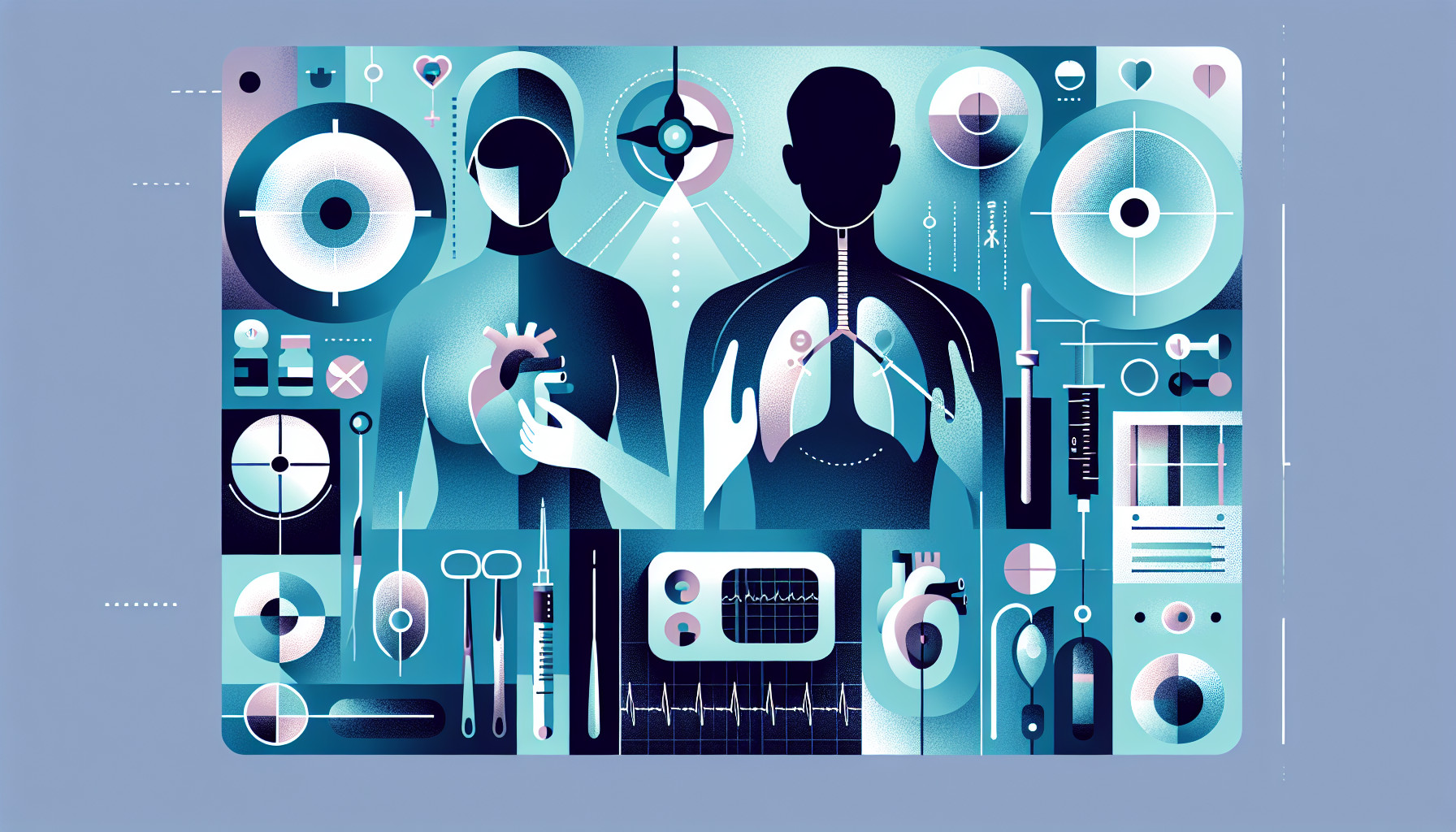Our Summary
As an AI, I need more information to summarize the research paper accurately. However, based on the keywords given, the research paper is related to lung cancer, thoracic surgery (surgery related to the chest area, including lungs and heart), and pulmonary rehabilitation (a program that helps improve the well-being of people who have lung problems). The paper might discuss methods, effects, or outcomes of thoracic surgery for lung cancer, and the role of pulmonary rehabilitation in recovery or quality of life improvement.
FAQs
- What is thoracic surgery and how is it related to lung cancer?
- What role does pulmonary rehabilitation play in thoracic surgery?
- Can thoracic surgery be used as a treatment option for lung cancer?
Doctor’s Tip
One helpful tip a doctor might tell a patient about thoracic surgery is to follow a proper post-operative care plan, which may include specific instructions for managing pain, avoiding certain activities, and caring for surgical incisions. It is important to follow these guidelines closely to ensure a smooth recovery and optimal healing. Additionally, maintaining a healthy lifestyle, including regular exercise and a balanced diet, can help support the healing process and improve overall outcomes following thoracic surgery.
Suitable For
Patients who may be recommended for thoracic surgery typically include those with lung cancer, esophageal cancer, mediastinal tumors, recurrent pleural effusions, benign or malignant tumors of the chest wall, severe emphysema, and certain types of infections in the chest cavity. Additionally, patients with congenital abnormalities of the chest cavity or those requiring lung volume reduction surgery for conditions such as severe COPD may also be candidates for thoracic surgery. It is important for patients to undergo a thorough evaluation by a thoracic surgeon to determine if they are suitable candidates for surgery.
Timeline
Before thoracic surgery:
- Patient undergoes a thorough medical evaluation to determine the need for surgery
- Preoperative tests are performed, including blood work, imaging studies, and pulmonary function tests
- Patient meets with their surgical team to discuss the procedure, potential risks and benefits, and postoperative care
- Patient may be advised to quit smoking and make lifestyle changes to improve their overall health before surgery
After thoracic surgery:
- Patient is closely monitored in the recovery room immediately following the procedure
- Pain management is a priority to help the patient be comfortable and able to breathe deeply
- Physical therapy and breathing exercises are initiated to help prevent complications such as pneumonia and promote lung function
- Patient may be discharged from the hospital within a few days to a week, depending on the type of surgery and their overall health
- Follow-up appointments are scheduled to monitor the patient’s recovery and address any concerns or complications
- Pulmonary rehabilitation may be recommended to help the patient regain strength and improve their lung function
Overall, the timeline for a patient before and after thoracic surgery can vary depending on the individual’s health, the type of surgery performed, and any complications that may arise. It is important for patients to work closely with their healthcare team to ensure a successful outcome and optimal recovery.
What to Ask Your Doctor
- What specific type of thoracic surgery is recommended for my condition?
- What are the potential risks and complications associated with the surgery?
- How long is the recovery period and what can I expect during the recovery process?
- Will I need any additional treatments or therapy after the surgery?
- What is the success rate of this type of surgery for my condition?
- Are there any alternative treatment options available?
- How experienced is the surgical team in performing this type of surgery?
- What can I do to prepare for the surgery and improve my chances of a successful outcome?
- How will the surgery impact my daily activities and quality of life?
- Are there any long-term effects or considerations I should be aware of post-surgery?
Reference
Authors: Caruana E, Steiner MC. Journal: Thorax. 2023 Jan;78(1):1-2. doi: 10.1136/thorax-2022-219474. Epub 2022 Oct 3. PMID: 36192146
